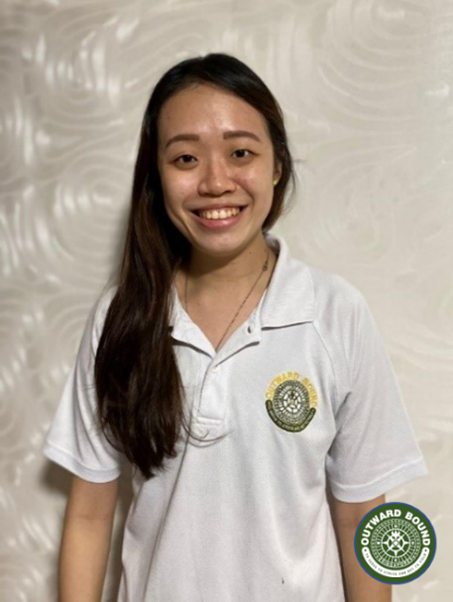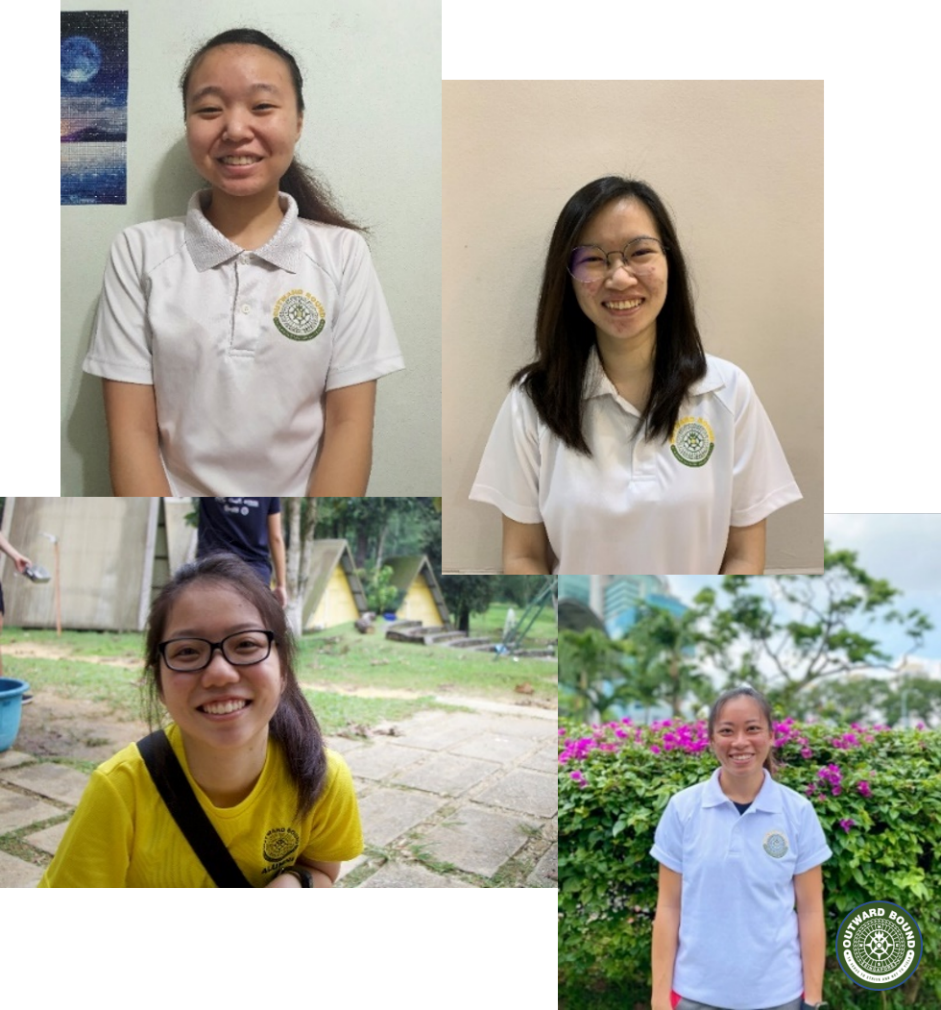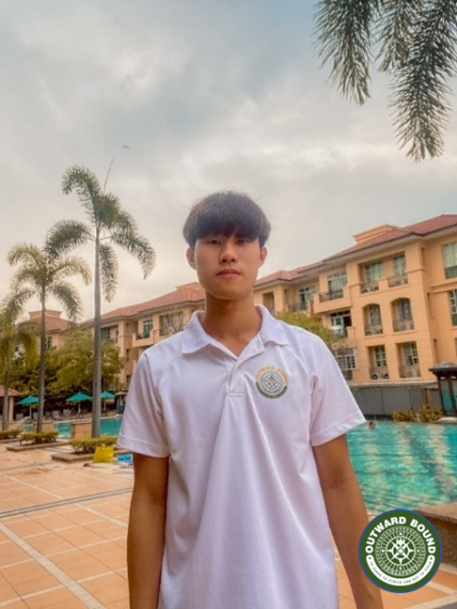Project Zero Hero – Sharing the Love for the Environment
by Jodie Wong

(second column down) Tan Sui Xin, Desmond Pang Ching Der, Eugenia Foo Huili
Inspired to educate students with special needs on environmental related topics, 6 Outward Bound Singapore (OBS) Leadership & Service Award (LSA) Alumni founded Project Zero Hero – a 16-month long educational project on how to achieve zero waste.
The project, which had its first collaboration with Cerebral Palsy Alliance Singapore School (CPASS), involved engaging students with activities such as enzyme detergent making, tote bag making, Bokashi composting, and vermicomposting.
The 6 OBS LSA Alumni members who made an impact in creating environmental awareness are, in no order of merit, Ng Wen Yi, Tan Sui Xin, Desmond Pang Ching Der, Eugenia Foo Huili, Sin Seok Kee Iris, and Tan Shi Yi.
When asked to share the meaning of Project Zero Hero, the team said: “We chose this name as we wanted the students to understand the importance of zero waste and be the ‘Zero Heroes’ in their individual lives.”
Much to their surprise, their project did not only impacted the students but the teachers as well. CPASS teachers are now empowered to drive environmental sustainability projects within the school. These include regular Bokashi composting of food waste for vegepods planted around the school and incorporating enzyme detergent making into the school’s curriculum.
Behind the huge success of Project Zero Hero would not be possible without the strenuous planning by the team of 6 which consists of a mixture of students and working adults.
Uncertainty

“During the Circuit Breaker period, the whole project took a hiatus. As everything was ambiguous, the planning became very slow since nothing could be confirmed, resulting in the inability of the progression of the project,” said Wen Yi, who identified re-igniting the fire to continue planning after Circuit Breaker as one of the challenges she personally faced during the project.
She added: “It was very difficult to find the motivation to continue the project especially when there were other things such as work and studies, that had a higher priority over this project, which had no clear direction.”
From Face-to-Face to Virtual
Going virtual is probably the best substitute for all real-life events in the post-COVID-19 world, but it posed a huge threat to the team at the very beginning.
Project Zero Hero was originally held during assembly time, where CPASS students and teachers gathered together for the interactive lessons. However, it was obligated to go virtual during the latter part due to the ongoing COVID-19 pandemic.

Top left – “Physical interaction was nearly impossible and trying to assess the students’ energy and participation through the screen was very challenging.,” said Iris who is the youngest in the team.
Top right – Eugenia mentioned developing “informative and engaging” Zoom lessons for the students was “harder for classroom interaction” which was critical for the project’s hands-on activities.
Bottom left – Shi Yi brought up practical points such as “unpredictable technical issues” and “loss of physical interaction” as the challenges she faced during the latter part of the project.
Bottom right – Sui Xin said: “My team and I had come up with initial plans to conduct the sessions during assembly for the students. However, due to the COVID-19 regulations, we had to make amendments to our initial plans by conducting lessons over online platforms.”
The team definitely overcame all the odds to get to where they are today.
“Seeing the smiles on the students' faces during the face-to-face and virtual activities, I could feel the pure joy from them. Also, I felt thankful seeing how the teachers actively followed up with the activities and for giving us the opportunity to conduct meaningful activities for the students,” said Shi Yi.
Time Commitment
24 hours a day was probably never enough for the team. Especially when the majority had bigger priorities such as work and school over this project.
“I struggled a little while adjusting myself to my work and school commitments. I felt lost,” said Sui Xin.

As the only man in the team of 6, Desmond had to juggle between his school’s project, internship, and Project Zero Hero.
“Due to the COVID-19 situation, I had my schedules postponed which resulted in challenges in planning my commitments. Furthermore, I felt that these changes led me to being unproductive and inefficient to my team during the execution stage, be it conducting lessons through Zoom or in person,” he said.
Increased Self-Awareness
Project Zero Hero saw the majority of the team identifying increased environmental awareness as their biggest takeaway.
Sui Xin and Desmond shared that this project taught them to be more environmental-friendly because of the need to model the way. They also became more appreciative of their surroundings by not taking things for granted.
Eugenia said: “I was able to promote environmental awareness to the CPASS students and at the same time gain more knowledge on how we can all play our small part in environmental protection.”
“I had to make sure I educated myself better about the topics that we covered so that we taught the right things,” said Iris who is currently teaching in the special needs education industry.
A Rainbow After the Storm
It may be the end of the collaboration with CPASS, but this marked the beginning of new friendships forged among these pioneers of Zero Heroes.
Wen Yi said her greatest takeaway from Project Zero Hero was “the whole process of this project”. She elaborated: “As I try to be environmentally friendly, it motivated me even more to be working with friends who share the same belief [of being environmentally conscious] and passion [in education] like me. Additionally, executing the lesson plan and seeing our efforts reap its rewards is also another thing I am pretty proud of.”
Sui Xin described the project to be “a rewarding experience” as she learnt “how to persevere in any circumstances and not to throw in the towel so easily”.
As for Desmond, the potential sports educator described the project catered for special needs students as an “eye-opening and fruitful experience”.
Shi Yi said: “It was my first time working with students with special needs and honestly I was worried about how it would turn out – whether the students would enjoy the sessions with us, but I’m glad that all went well.”
Iris exclaimed that it was “heartwarming and encouraging” to witness CPASS putting in efforts in making a difference to the environment.
Final Words
The 6 OBS LSA Alumni members have definitely overcame all their challenges to get to where they are today. Grateful for one another, the team also highlighted that the support they received from CPASS was one of the reasons that kept them going.
“Thinking back, our team was blessed to work with such a supportive partnering organisation. Although our knowledge may be limited, this project has clearly made an impact on the students, who eventually made an impact on our environment,” quoted Shi Yi.
If you are inspired to pay it forward and serve the community, express your interest in driving community projects with us now!
